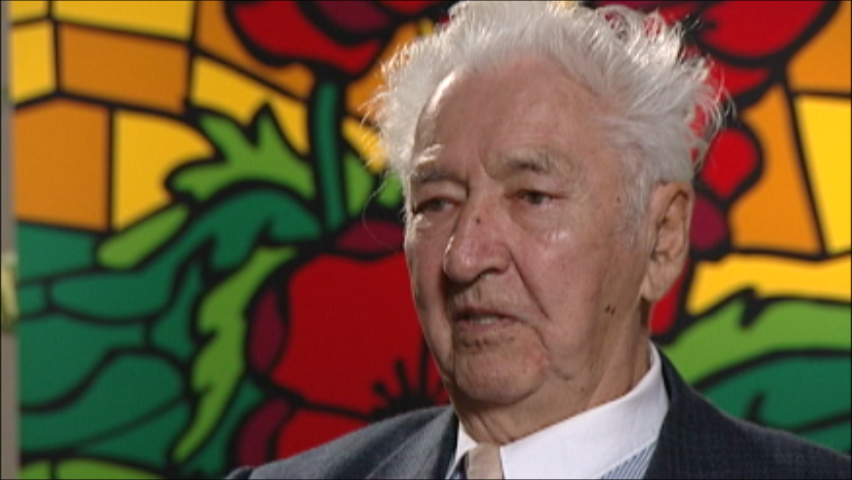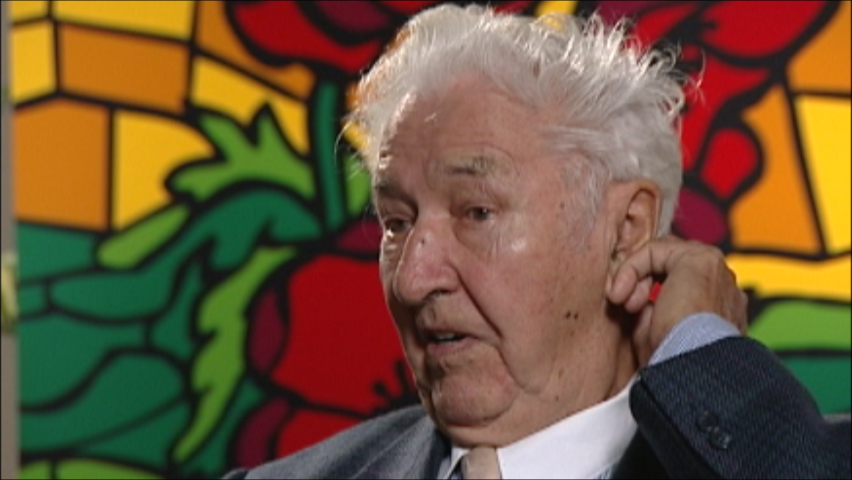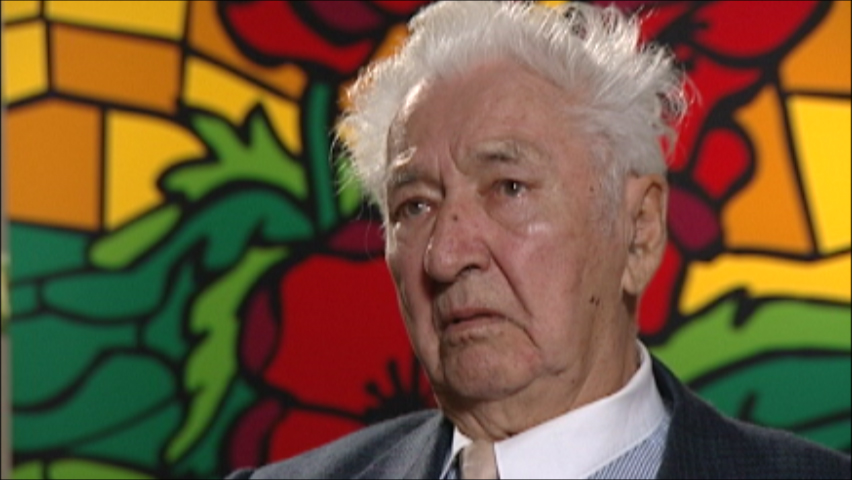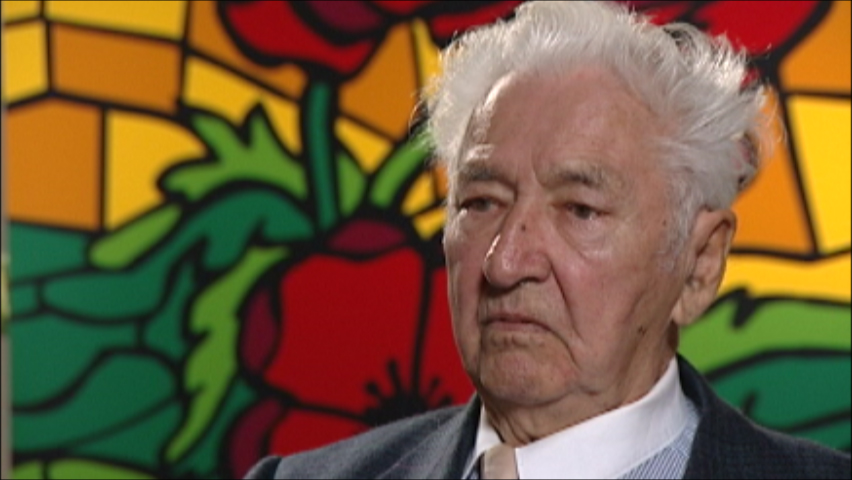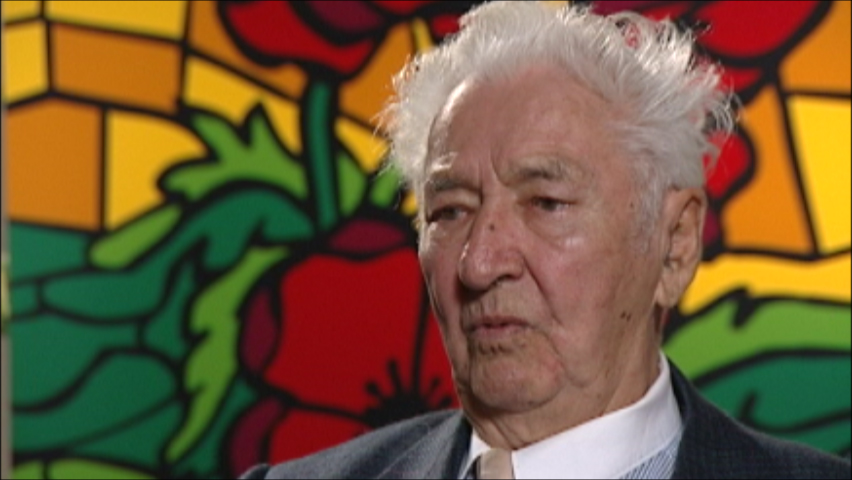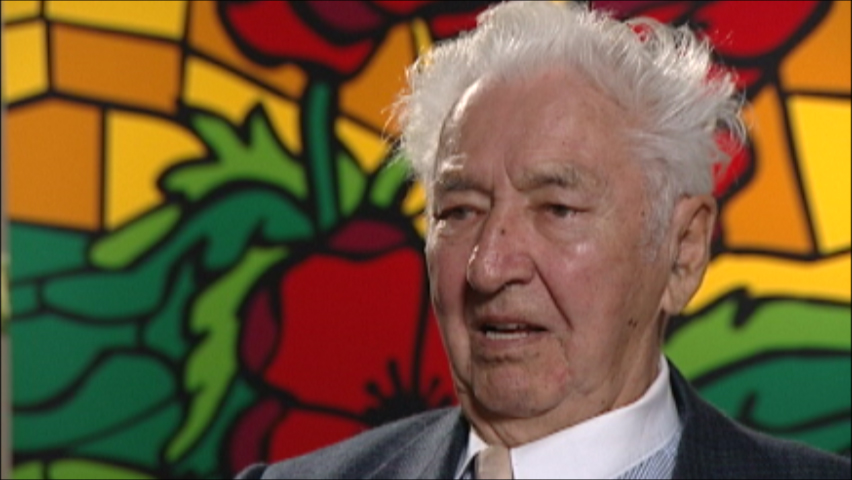The Treatment of Collaborators
Heroes Remember
The Treatment of Collaborators
Transcript
I had an experience with, in, when we were in Lille in France.
There were these people that went into this village and
they were cutting these women’s hair off, you know,
because they’d been associating with the Germans.
And they were, they’d just get their hair and they’d just
clip it all off and then they’d get a razor and make
them all bald-headed. And they were stuffing this stuff down
this little boy’s shirt, the hair. I say,
“Why are they doing that?” because they couldn’t talk very
much, and this one guy could talk pretty good English and
he said, “Well, that kid had informed the Germans that
there was some paratroopers, that had our air plane had been
shot down, and these people had bailed out and he told
the Germans where they were.” So he said that’s why they were
cutting these women’s hair off because they had associated
with the Germans. He said, “You want to cut their hair?”
I said, “Not really, no.” You know, it’s not my problem.
You know, after all, those guys, you know, those people
had been there for four years, and I suppose if somebody
offered you a loaf of bread or whatever, you know, to eat,
food, I suppose you would associate with them too.
I don’t know, I’m not... Like you’re talking about moral
standards. I don’t know, you know. If you’re starving,
I suppose you would.
Description
Mr. Bruce discusses the treatment of collaborators and expresses some sympathy for them as oppressed civilians were faced with starvation.
Robert Bruce
Robert Bruce was born on February 11, 1922 at Sturgeon Valley, Saskatchewan. He was the second youngest of eight children. After they were forced to sell their farm when his mother was widowed, the community built Mr. Bruce’s family a new house across from the local school. He left school at fourteen, didn’t qualify academically for the air force, and eventually joined the army, where he served as a truck driver. Mr. Bruce served in post D-Day Europe from France to Germany. After the war, he returned to Canada and worked on the railroad.
Meta Data
- Medium:
- Video
- Owner:
- Veterans Affairs Canada
- Duration:
- 1:42
- Person Interviewed:
- Robert Bruce
- War, Conflict or Mission:
- Second World War
- Battle/Campaign:
- Battle of Normandy
- Branch:
- Army
- Units/Ship:
- Royal Canadian Army Service Corps
- Rank:
- Private
- Occupation:
- Truck Driver
Related Videos
- Date modified:



